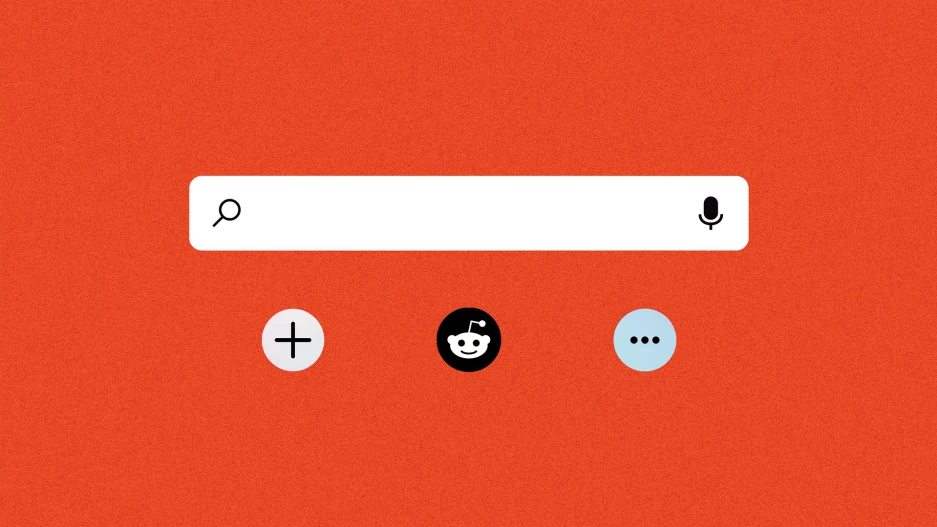UPDATED 2/18, 10 a.m. PST: This story has been updated with comments from Google’s Danny Sullivan.
The core argument is that many people have become so disappointed in—or distrustful of—good old Google search results that they now append the term “reddit” to the end of their queries. So instead of searching the world of information that Google and its web-crawler bots see, you get information and links from the world of things that have been discussed in Reddit land, which are a lot. “Why are people searching Reddit specifically?” the blog post reads. “The short answer is that Google search results are clearly dying. The long answer is that most of the web has become too inauthentic to trust.”
The first part of his argument is that Google simply devotes too much space to ads on its search results, including the prime real estate at the very top of the results. Brereton points out that Google founders Larry Page and Sergey Brin recognized this conflict early on. The two acknowledged in a 1998 research paper that ads can be at cross purposes with good search.
“[W]e expect that advertising funded search engines will be inherently biased towards the advertisers and away from the needs of the consumers,” the Google founders wrote in a research paper while at Stanford. “Furthermore, advertising income often provides an incentive to provide poor quality search results.”
Of course, when Page and Brin wrote that paper, Google was years away from monetizing its search engine. When the company did begin running search ads, they were text-based, targeted ads based on search terms, and positioned at the right of the search results. They were considered far less intrusive than the banner ads run by other search engines at the time.
Over the years, Google has attempted to strike a balance between earning massive search-ad revenue—and delivering useful search results that encompass the vastness of content on the web. That balance shifted toward profit in 2015 and 2016, as it moved the ads from the right to the top of the search results. These days, there are so many ads that you frequently have to scroll down to get to actual search results.
Google disputes this. The company’s search spokesperson Danny Sullivan says in a tweet that many Google searches have no ads at all. “If the goal were to dial it up ‘to the max’ then you’d see ads all the time, on all the searches,” Sullivan tweeted. “That’s not the case. But as always, we have taken on board the feedback about ads.”
Secondly, Brereton argued that Google search results have been degraded by SEO. Because Google has been our “de facto” best search engine for so long, a whole industry of search engine optimization has formed around it. Thousands of consultancies, tech firms, and ad agency departments exist solely to help companies get their content to the top of Google search results. (Fast Company has a growth team that, among other things, specializes in suggesting the best SEO terms to help articles show up in Google News.) Google also gives preference to content from its own properties, noted Brereton. To see that in action, just do a place search—you’ll get Google Maps data. Ask about air travel, and you’ll see Google Flights.
Google search has some other shortcomings, said Brereton. While it is helpful if you’re trying to remember the capital of South Dakota or the distance to the moon, it is less so if you are trying to answer more open-ended questions for which you’re searching for a diversity of opinion. If, for example, you’re trying to find actual opinions from real people about a new laptop on the market, you might be better off going to Reddit instead of relying on Google results, he argued.
Google’s Sullivan put out a number of tweets responding to DKB’s blog post (and resulting discussion). He points out that even if people are adding “reddit” to searches, it’s telling that they’re still searching Reddit content using Google’s search engine and not Reddit’s.
“With appending ‘reddit’ to a query, some people clearly want to get great content from Reddit but for whatever reason don’t find searching there to be as useful,” Sullivan tweets. “So using Google to successfully locate what you want at Reddit, that’s also a sign we’re helpful.”
Although Google dominates the search market, Brereton’s argument clearly resonated with a portion of the tech community. “I think the large reaction and endless stream of ‘this is relatable’ [comments] means that clearly some portion of the population strongly resonates with this idea that Google search results aren’t good—that the results Google shows are inauthentic,” he said.
It’s the kind of thing that might just inspire a couple of hackers sitting in a dorm room somewhere to create a new search engine.








































